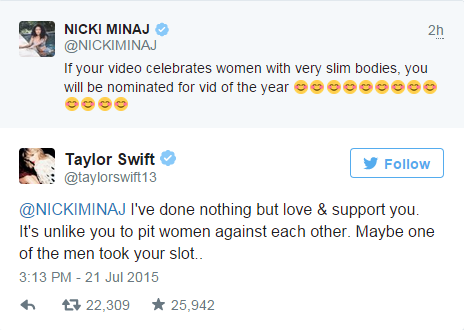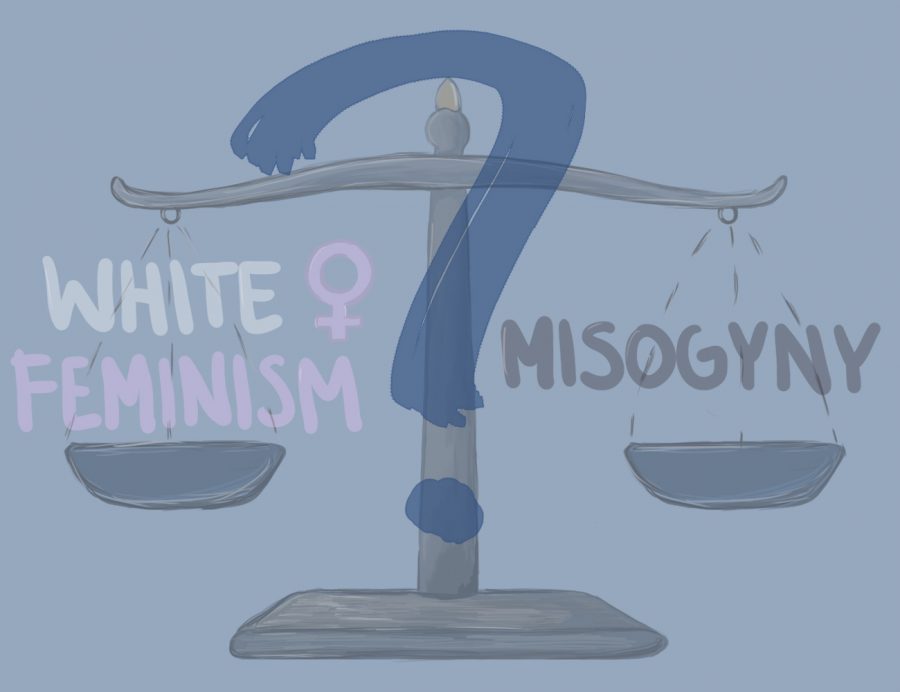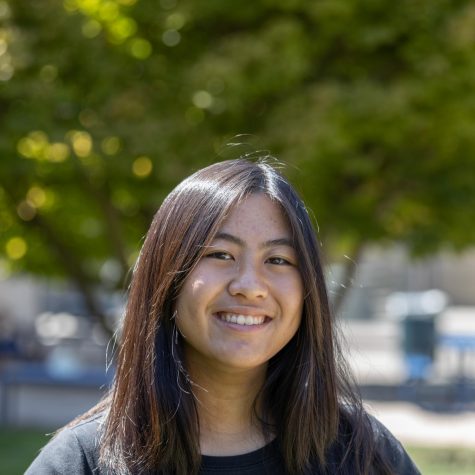Taylor Swift suffers under the patriarchy — and also benefits from it. Here’s why.
The battle between Taylor Swift stans and Taylor Swift haters often act as though Swift can either be a white feminist or a victim of misogyny. The truth is that she’s both.
Anyone who knows me will tell you: I am the biggest Swiftie there is. But Taylor Swift, pop icon and lyrical genius though she may be, is still human and has room for growth like everyone else. People seem to forget this, which is clear when examining the controversy around Swift and the recently released Netflix show “Ginny and Georgia.”
The show, which follows young mother Georgia Miller and her children Ginny and Austin as they settle down in a New England town, received backlash from Swift over a misogynistic joke in the first episode: “You go through men faster than Taylor Swift.” Swift’s response has led to a divide online between those who support her in responding to the joke and those who criticize her for the white feminism (feminism that focuses on white women’s struggles and not the other forms of oppression minority groups face) in her retort.
It is here wherein the problem lies: These two statements aren’t mutually exclusive.
Swift most definitely faces misogyny in the entertainment industry. She has seen disproportionate amounts of slut-shaming and scrutiny over her relationships and her propensity for writing songs about them, while men like Ed Sheeran — who also writes breakup songs — are completely ignored.
Netflix’s joke becomes especially distasteful when you realize that they helped produce her documentary “Miss Americana” in which she speaks specifically about that exact type of slut-shaming. It’s not a good look for Netflix; as Swift says, “this outfit doesn’t look cute on you.”
But her response doesn’t look too cute, either. As someone with the privileges of being a straight, cis white woman, it’s problematic that after the thousands of racist hate comments being left to the young Black actress Antonia Gentry (who stars as Ginny) for saying the line, Swift has yet to speak about it or tell her fans to stop. It’s rather telling that Swift only seems to use her influence when people attack her, but not others.
This isn’t the first time she showed her propensity for white feminism. Just look at her song “The Man,” in which she argues that it’s hard being a rich, white female while ignoring the complexities of the female experience when it comes to women of color and the systemic oppression they face. She sings, “What’s it like to brag about raking in dollars / And getting b*tches and models? / And it’s all good if you’re bad / And it’s okay if you’re mad / If I was out flashing my dollars / I’d be a b*tch, not a baller.”
This is a line that criticizes double standards when it comes to flexing wealth — but it doesn’t acknowledge the structures that allow white people like herself to achieve that success. While it may be hard to explain these nuances to that same catchy beat, Swift does not acknowledge it at all in the song or the music video.
Look to 2015 when Nicki Minaj complained about “Anaconda” not being nominated for the MTV Video of the Year Award by tweeting, “If your video celebrates women with very slim bodies, you will be nominated for vid of the year” and “When the ‘other’ girls drop a video that breaks records and impacts culture they get that nomination.”

Swift responded by saying, “I’ve done nothing but love & support you. It’s unlike you to pit women against each other. Maybe one of the men took your slot.” This response to a critique that was not even directly about her derailed an important conversation about the underlying racism in the entertainment industry. It is also an example of Swift making herself the victim — a recurring theme that often comes up with white feminists facing intersectional feminism.
Swift is a celebrity, not an infallible idol to be put on a pedestal. She can experience oppression and sustain other forms of oppression. Her white feminism does not diminish the validity of the misogyny she suffers, and that misogyny does not diminish the detriments of her white feminism. They coexist.
She, like everyone else, needs the opportunity to grow. It benefits no one to get #TaylorSwiftIsOverParty or #TaylorSwiftIsLovedParty trending, because both of these hashtags ignore the nuances of the situation. Instead of discrediting her own experiences with sexism, she should be given the constructive opportunity to learn about the ways in which she remains complicit in a patriarchal system of oppression.







Daniela | May 18, 2022 at 6:08 pm
No women are privileged under patriarchy. White women certainly don’t benefit from it the way that black men do. These conversations are always about white women, but never about the black men raping and killing black women under patriarchy. Almost like…this isn’t actually about feminism. White women are not bigger oppressors of black women than black men are, and they’re getting tired of the constant policing of their every tiny action. Fuck off, if they were so oppressed, they wouldn’t be putting up with these lectures from college-educated, upper middle class whiners. Kanye did so much disgusting shit to Taylor Swift, including the misogynistic shit of saying he made her famous, calling her a bitch, putting her naked likeness in the video. Then he went on stage and interrupted her award speech on behalf of Beyonce, who was horrified/embarrassed, and BEYONCE ended up winning Video of the Year, while TS only got Best Female Video. Beyonce deserved the big award, so why did Kanye get upset when she lost the smaller one? Oh, right, because he was ALSO nominated for Video of the Year. If I were to assume the worst of him, as everyone is always doing to Taylor Swift, I would think that he assumed he was going to win Video of the Year because of male entitlement. He likens his life in the music industry to slavery, but Taylor is the victim? lmfao, how is being an almost billionaire slavery? Anyway, you are confused. White women benefit under white supremacy, NOT patriarchy. They are oppressed by patriarchy. Just say you don’t think white women are oppressed, and keep blaming them for all the violence that is done to black women.